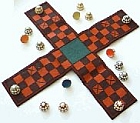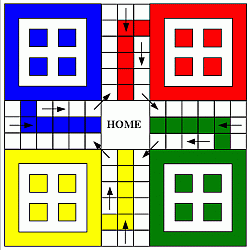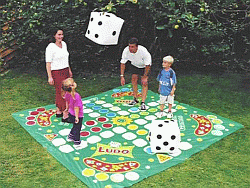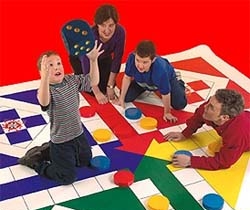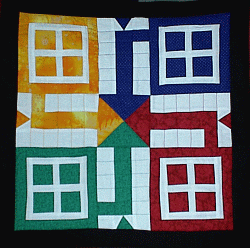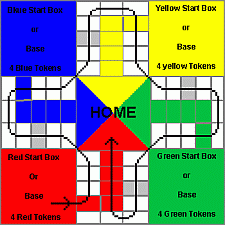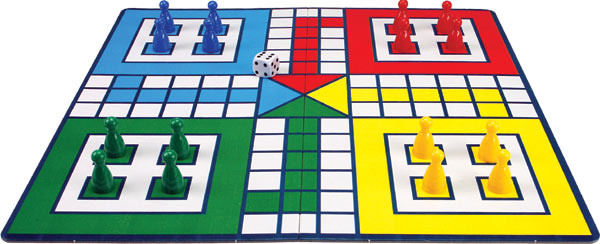| Home Online Freeware Commercial |
|
|||||||
| Pachisi Ludo Parcheesi Parques Parchis Patolli Chaupar Other About Links |
Ludo
There is no partnership game, safety zones or blockades. The minimum of strategy in the game makes it of primary interest to younger children. Ludo (and it's variations) are very popular in large parts of Europe. It is also known as Mensch Ärgere dich nicht (Germany/1910), Mens-erger-je-niet (the Netherlands), Parchis (Spain), Le Jeu de Dada or Petits Chevaux (France), Non t'arrabbiare (Italy), Fia med knuff (Sweden), Parqués (Colombia). Eile mit Weile (travelling theme variant from late nineteenth-century Germany) is popular in Switzerland, as does its Italian equivalent Chi va Piano va Sano! Ludo was first published in England in 1896 (Ludo is Latin for "I play" - ludus). The game was patented as patent 14636. A game called Puchese was published in England as early as 11. April 1862. It is not known which connection there is between Puchese and Ludo.
Printed sources: Online sources: |
|||||||
|
|
[Home] [Online] [Freeware] [Commercial] [Pachisi] [Ludo] [Parcheesi] [Parques] [Parchis] [Patolli] [Chaupar] [Other] [About] [Links] [Comments] [Site log] | |||||||
| © 2005 - 2006 Vegard Krog Petersen |
